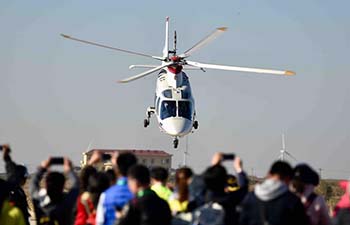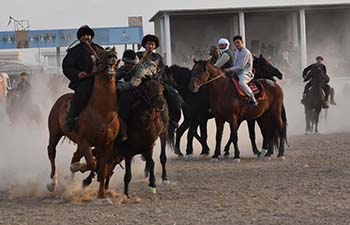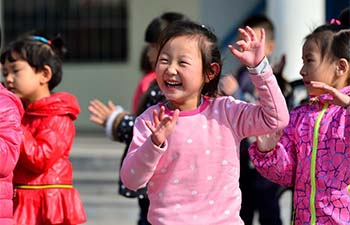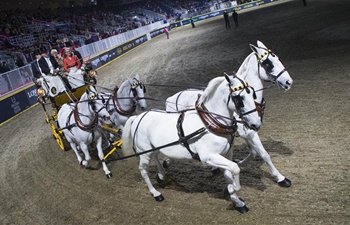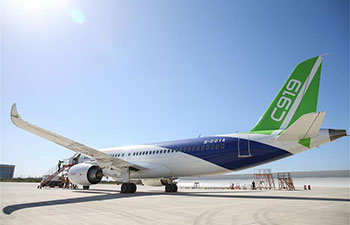ANAHEIM, the United States, Nov. 11 (Xinhua) -- Students as young as sixth-graders can learn and perform CPR effectively and should be targeted for training, according to preliminary research presented at the American Heart Association (AHA) Scientific Sessions 2017 which starts Saturday in Anaheim, California.
According to the AHA, over 350,000 out-of-hospital cardiac arrests occur in the United States each year and almost 90 percent of people who suffer out-of-hospital cardiac arrests die.
Statistics prove that if more people knew CPR, more lives could be saved. CPR, especially if performed in the first few minutes of cardiac arrest, can double or triple a person's chance of survival.
Some states in the United States already require Hands-Only CPR training for high school graduation, but researchers say there has been little focus on younger children.
"We were wondering why they need to wait until 12th grade when sixth graders have learned the circulation system and seem mature enough and are interested in learning Hands-Only CPR," study author Mimi Biswas, M.D., a cardiologist at University of California Riverside School of Medicine and Riverside Community Hospital, was quoted as saying in a news release.
In the research, 160 sixth-graders, average age 12, were divided into three groups. One group (the control) watched the AHA's video CPR in Schools Training Kit to learn how to perform 100 to 120 compressions per minute (CPM) on the adult CPR manikins. The second group watched the video and listened to music with a tempo matching the goal compression rate. The third group watched the video and played a video game to reinforce the goal compression rate.
Each child then tested their new skills to perform Hands-Only CPR for adults on the manikins. The study found that across the groups, most students remembered to call 911, performed CPR in the correct location and provided high-quality compressions.
However, attainment of goal compression rate for effective Hands-Only CPR was higher among the music and video game groups than the control group. Based on these findings, researchers suggest that tempo-reinforcing tools like music and video games may help children attain goal compression rate.
AHA's Scientific Sessions, a premier global exchange of the latest advances in cardiovascular science for researchers and clinicians, attracts nearly 18,000 attendees, with a global presence from more than 100 countries.




